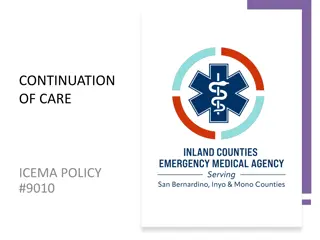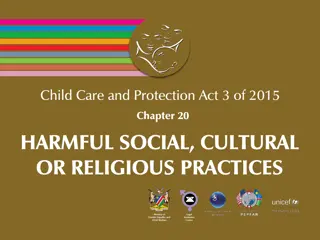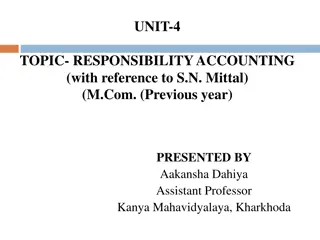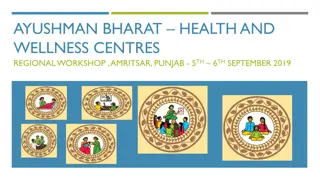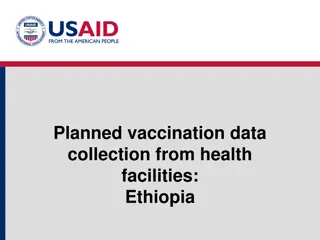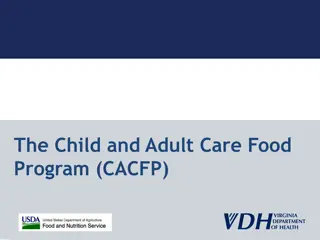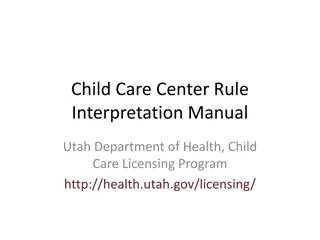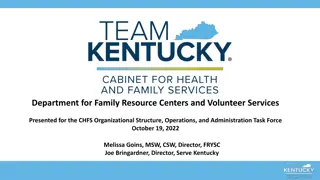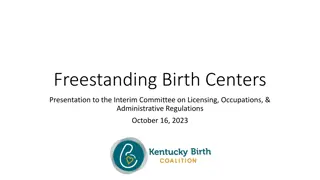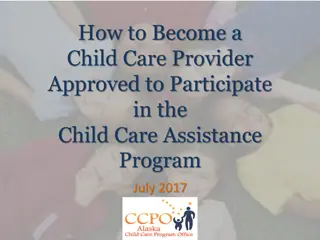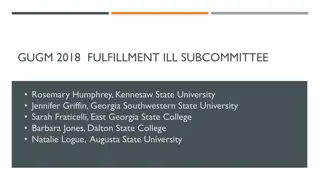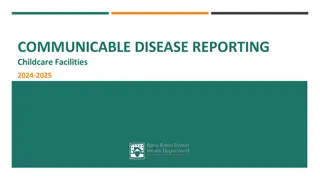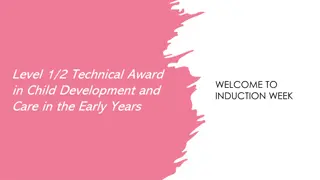Guidelines for Care of Mildly Ill Children in Child Care Centers
The guidelines outline the conditions under which child care centers can provide care for mildly ill children, specifying temperature limits, symptoms to watch for, and diseases that require separation. It also details procedures to prevent the spread of communicable diseases and requirements for care facilities. Specific measures include notifying parents, maintaining sanitation, and using hands-free fixtures.
Download Presentation

Please find below an Image/Link to download the presentation.
The content on the website is provided AS IS for your information and personal use only. It may not be sold, licensed, or shared on other websites without obtaining consent from the author. Download presentation by click this link. If you encounter any issues during the download, it is possible that the publisher has removed the file from their server.
E N D
Presentation Transcript
10A NCAC 09 .0804 INFECTIOUS AND CONTAGIOUS DISEASES (a) Centers may provide care for a mildly ill child who has a Fahrenheit temperature of less than 100 degrees axillary, or 101 degrees orally, and who remains capable of participating in routine group activities; and the child shall not have any of the following: (1) the sudden onset of diarrhea characterized by an increased number of bowel movements compared to the child's normal pattern and with increased stool water; (2) two or more episodes of vomiting within a 12 hour period; (3) a red eye with white or yellow eye discharge, until 24 hours after treatment has started; (4) scabies or lice; (5) known chicken pox or a rash suggestive of chicken pox; (6) tuberculosis, until a health professional states that the child is not infectious; (7) strep throat, until 24 hours after treatment has started; (8) pertussis, until five days after treatment has started; (9) hepatitis A virus infection, until one week after onset of illness or jaundice; (10) impetigo, until 24 hours after treatment has started; or (11) a physician's or other health professional's written order that the child be separated from other children.
(b) Centers that choose to provide care for mildly ill children shall: 10A NCAC 09 .0804 INFECTIOUS AND CONTAGIOUS DISEASES (1) follow all procedures to prevent the spread of communicable diseases described in 15A NCAC 18A .2800, "Sanitation of Child Care Centers , as adopted by the Commission for Public Health; (2) separate from the other children any child who becomes ill while in care or who is suspected of having a communicable disease or condition other than as described in Paragraph (a) of this Rule until the child leaves the center; (3) notify all parents at enrollment that the center will be providing care for mildly ill children; (4) notify the parent of any child who becomes ill or who is suspected of being ill with a communicable condition other than as described in Paragraph (a) of this Rule that the child is ill and shall leave the center; (5) notify the parent of any sick child in care if the child's condition worsens while the child is in care
.2836 MILDLY ILL CHILDREN 1. Prior to starting a program for mildly ill children, the child care operator shall request an inspection from the local health department. 2. Drinking fountains shall not be used. 3. Fixtures cleaned and disinfected after each use. 4. Lavatories shall be hands-free or equipped with a single lever faucet 5. No use of cloth diapers 6. Individually labeled moist towelette containers shall be provided for each child in diapers
7. Caregivers shall wear clean disposable gloves when diaper changing. 8. Moist towelettes shall not be used in lieu of handwashing for children who cannot support their heads. 9. A 36-inch separation shall be maintained or partitions shall be placed between beds, cots and mats to minimize contact among children. 10.Furniture shall be nonabsorbent. 11.Thermometers and mouthable toys shall be cleaned and sanitized between uses by different children. Soft, cloth material toys may be brought from home if labeled for use by an individual child. If soft toys are provided by center, they shall be sanitized between uses by different children.
12.Caregivers for mildly ill children shall not prepare food in the kitchen or serve food to well children. 13.Family style food service is prohibited. 14.Carpeted floors are prohibited. Throw rugs may be used if laundered when contaminated and at least weekly. Floors contaminated by body fluids shall be cleaned and disinfected immediately. 15.Caregivers shall wash hands in accordance with the procedures in Rule .2803(c) before leaving the area designated for mildly ill children. 16.All waste shall be disposed of in a plastic-lined, covered receptable.



